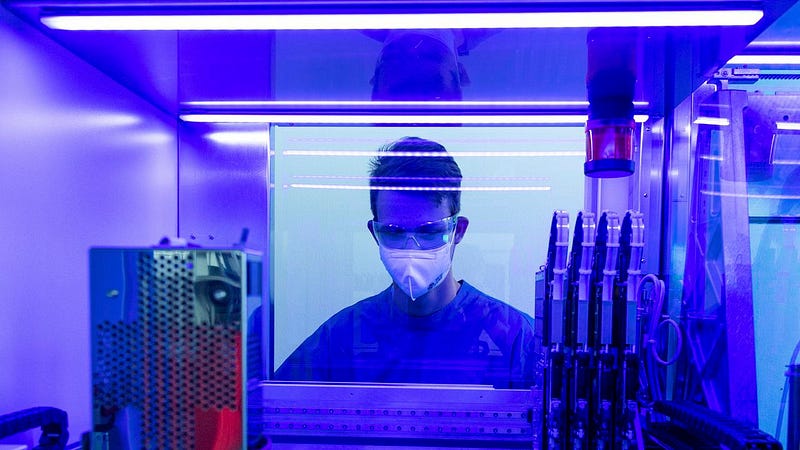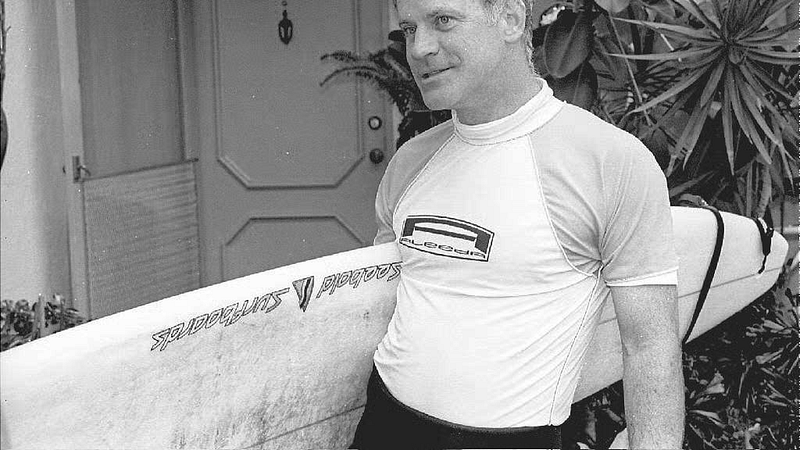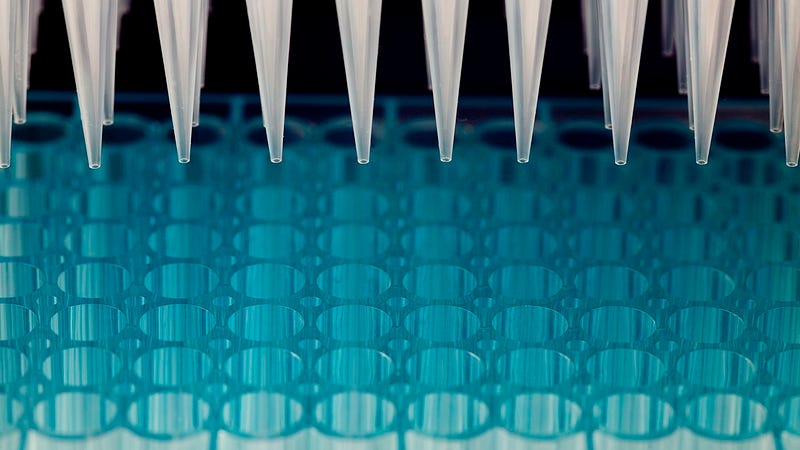# The Unconventional Journey of Kary Mullis and the PCR Test
Written on
The Birth of a Revolutionary Technology
The PCR test has become synonymous with the global pandemic, but the fascinating tale of its inception is less well-known. Created by the unconventional scientist Kary Mullis, this groundbreaking biotechnological advancement was born from a mix of brilliance and eccentricity.

In May 1983, Kary Mullis, an obscure scientist, was driving through the serene hills of Anderson Valley, California, with his girlfriend, Jennifer, asleep beside him. During this nighttime journey, Mullis reflected on his work at Cetus, a biotechnology firm focused on DNA research. He found the process painstakingly slow, often taking weeks to analyze a tiny DNA segment.
Suddenly, an illuminating concept struck Mullis. He envisioned a technique that would accelerate DNA testing. Realizing the significance of this idea, he pulled over to document it, much like a scientist on the brink of a Nobel Prize-worthy discovery. As he scribbled his thoughts, Jennifer stirred but soon dozed off again.
The Genesis of PCR Technology
This seemingly improbable scenario, on a quiet country road, led to the creation of the PCR test. The concept Mullis penned on an old envelope laid the groundwork for a technology now pivotal in the battle against coronavirus.
Before PCR, DNA research was labor-intensive and akin to searching for a needle in a haystack. Technicians would spend countless hours examining minute DNA fragments. Mullis's innovation transformed this arduous task by proposing that researchers first replicate a specific DNA sequence billions of times, making it significantly easier to locate amidst the vast genetic landscape.

To illustrate, imagine trying to find a few scattered pages of a book throughout the expansive United States. It’s nearly impossible unless you create billions of duplicates first, turning a daunting task into a manageable one. Mullis's approach revolutionized the field, enabling scientists to trace DNA much more effectively.
It’s hard to overstate how transformative Mullis's idea was. The PCR test opened doors to countless applications that were previously unattainable, marking it as one of the most significant biotechnological breakthroughs of the last century.
The Controversy Surrounding the Invention
Despite the monumental impact of the PCR test, its invention sparked disputes. Some of Mullis's peers contended that they were the true creators of the technique. This rivalry culminated in Mullis receiving a modest compensation after Cetus sold the PCR technology for a staggering USD 330 million. Although Mullis felt slighted, he ultimately earned recognition when he was awarded the Nobel Prize in Chemistry on October 13, 1993.
“I’ll take it,” Mullis replied upon receiving the news, then promptly headed to the beach to surf, as was his routine.

The media soon caught wind of his surf-centric lifestyle, dubbing him the “Surfer Nobel Laureate.” This playful demeanor defined Mullis, who was known for his unpredictable antics and often controversial remarks.
Eccentricity and Controversy
Mullis's unconventional behavior extended to various aspects of his life, including his acceptance speeches and public appearances. He often made headlines for his outlandish statements, such as calling the Japanese empress “darling” during a prestigious awards ceremony. His antics included displaying provocative slides at a scientific conference in Spain, showcasing his disregard for conventional norms.
After winning the Nobel Prize, Mullis launched his own venture, StarGene, aiming to sell jewelry embedded with DNA from celebrities. He often engaged in bizarre discussions, such as proposing a business that would import alcohol from outer space, aptly named AlcoStar.
Despite his scientific genius, Mullis held controversial beliefs, including a rejection of established views on AIDS and global warming, which alienated many in the scientific community.
Influence of Psychedelic Experiences
Mullis candidly discussed his use of psychedelic drugs, asserting that his most pivotal insights emerged from his experiences with LSD. He claimed that during these trips, he felt capable of navigating the intricacies of DNA on a molecular level. Reflecting on whether he would have developed the PCR test without LSD, he remarked, “On LSD, I could sit on a DNA molecule and watch the polymers pass by.”
This fascinating notion leads to the thought that without Mullis's psychedelic experiences, the landscape of biotechnology might look drastically different today.

Although Kary Mullis passed away in August 2019, just months before the pandemic, his legacy endures. His name frequently resurfaces in discussions about the PCR test, particularly in debates surrounding its reliability.
Misinterpretations and Misattributions
Some statements attributed to Mullis regarding the PCR test's efficacy have been misquoted, often in contexts that misrepresent his views. Critics, particularly those opposing vaccinations, have twisted his remarks to support their narratives, despite many being taken out of context.
While Mullis did acknowledge certain limitations of the PCR test—specifically its qualitative nature—his assertions do not undermine its diagnostic value. The PCR method is widely employed in hospitals for both diagnosis and quantification of viral genetic material, proving its utility in modern medicine.
A Bright Future for PCR
The PCR test is poised for a promising future, especially in light of its critical role during the pandemic. The technology's integration into healthcare has underscored its significance, further solidifying Mullis's legacy.
While his life was marked by controversy and eccentricity, it is essential to remember Kary Mullis for the brilliance of his invention: the PCR test. That singular moment of inspiration remains a testament to his genius.